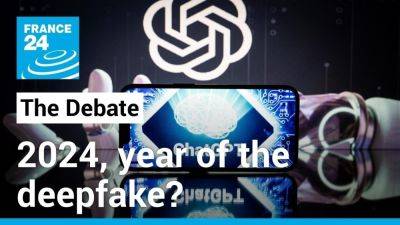Euroviews. Will EU leaders take up the quantum challenge in front of them?
We are now living through a quantum revolution, with modern technology allowing us to directly manipulate individual quantum systems and fully utilise quantum phenomena.
These breakthroughs are enabling a new class of technologies based on quantum mechanics.
Quantum technologies may drastically change the world as we know it. They are expected to positively impact many sectors, including pharmaceuticals, climate and weather modelling, and financial portfolio management.
They could be used for molecular simulation to upgrade electric vehicle batteries, optimise traffic flows or improve generative models that create datasets to enhance machine learning.
These benefits come from the computational advantages of problem-solving in totally superior ways compared to traditional computers.
At the same time, this new computational power also has a darker side — and that’s why quantum technologies are relevant to cybersecurity.
While quantum technologies can bolster cybersecurity, they can also break widely used cryptographic algorithms, thus breaking into confidential data.
Since most internet applications rely on cryptography to guarantee confidentiality, authenticity and data integrity, cryptographically relevant quantum computers (CRQCs) that can break cryptographic algorithms would have major cybersecurity implications.
A quantum computer with just 20 million quantum bits (a mid-range smartphone has hundreds of billions of bits of storage) would be able to break a code in eight hours that would take today's best supercomputers trillions of years to do.
Currently, quantum computers are too small and error-prone to be a threat — experts believe that CRQCs will only emerge in the next 5-10 years but only become truly viable in the








